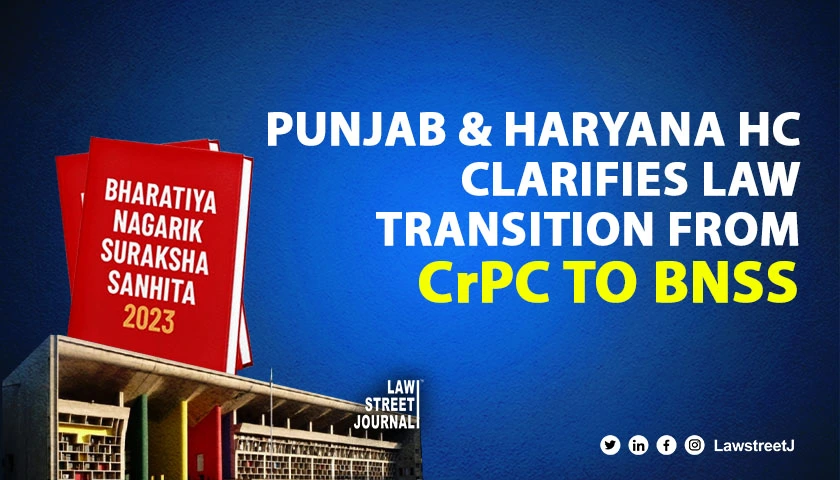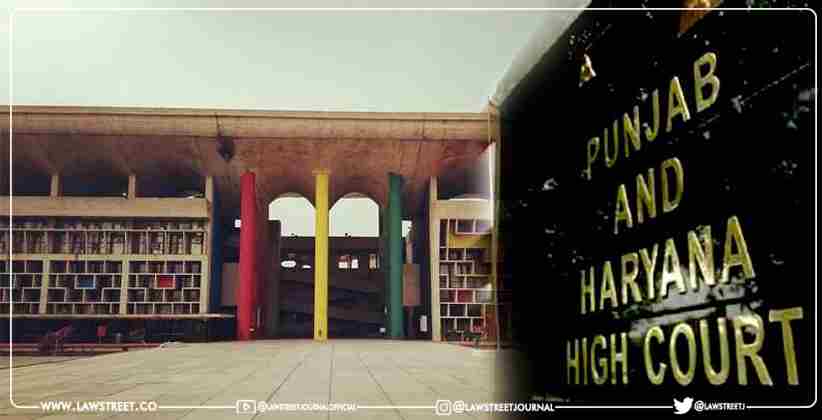Punjab: The Punjab and Haryana High Court has delivered a landmark order clarifying the applicability of the old Code of Criminal Procedure (CrPC) and the new Bharatiya Nagarik Suraksha Sanhita (BNSS) for pending cases after the repeal of the CrPC. In an order passed on July 2, 2024, Justice Anoop Chitkara addressed the crucial question of which law would govern time-barred petitions filed under the CrPC with pending applications for condonation of delay, given that the CrPC was repealed on July 1, 2024.
The court was hearing a criminal revision petition filed by one Mandeep Singh, who had been convicted under Section 138 of the Negotiable Instruments Act. Singh filed the petition 38 days after the statutory limitation period, accompanied by an application seeking condonation of delay under Section 5 of the Limitation Act.
Examining the transitional provisions, the court observed that Section 531 of the BNSS clearly states that all pending appeals, applications, trials, inquiries, or investigations as of June 30, 2024, would continue to be governed by the CrPC, 1973. The court comprehensively analyzed relevant legal provisions, including Section 531 of the BNSS, 2023, Section 6 of the General Clauses Act, 1897, and Section 5 of the Limitation Act, 1963.
"The effect of condonation of delay is that the delay is forgiven, and the plea is treated as filed within the limitation period; thus, it would relate back to the date on which the limitation expired. The said date would be the determining factor, and the procedure that was applicable on that date would apply to the revision," the court said.
Referring to Section 6 of the General Clauses Act and previous judgments, including National Planners v. Contributories (AIR 1958 Punjab 230), the court ruled that the repeal of a statute does not affect pending legal proceedings or remedies related to rights acquired under the repealed law. The court emphasized the importance of this provision in mitigating the harsh effects of statute repeals.
The judgment clarified that condonation of delay effectively backdates the petition to when it should have been filed, determining which law applies. This interpretation ensures continuity in legal proceedings and protects the rights of litigants caught between the two legal regimes.
In its conclusion, the court stated: "Section 531 of the Bharatiya Nagarik Suraksha Sanhita, 2023 explicitly specifies that pending appeals shall be disposed of or continued as if the new law had not yet taken effect, following the provisions of the CrPC. The petition and the accompanying application seeking an extension of time were filed and registered in the registry of this Court when the CrPC, 1973 was in force and were pending on the 1st of July 2024; hence, they would fall under the scope of section 531(2)(a) of the Bharatiya Nagarik Suraksha Sanhita, 2023."
Consequently, the court ruled that the petition would be adjudicated under Section 401 of the CrPC, 1973, and not under Section 442 of the BNSS, 2023. This decision sets an important precedent for similar cases across India dealing with the transition between the CrPC and BNSS.
The court allowed the application for condonation of delay and listed the main Criminal Revision Petition for hearing on July 4, 2024.




![Police protection to fund manager alleging threat from Kirron Kher & aide: Punjab & Haryana HC [Read Order]](/secure/uploads/2023/12/lj_9007_Police_Kirron_Kher.jpg)
![Most interested witness being the father of deceased, SC upholds acquittal of 6 accused for murder [Read Judgment]](/secure/uploads/2023/12/lj_9904_df2c02a2-d8c5-4dd6-8b58-a59e17b8635b.jpg)
![Supreme Court Collegium approves new Chief Justices for five key High Courts in India [Read Recommendations]](/secure/uploads/2023/12/lj_8000_380d1135-6f3a-4988-a00a-4d5cd5901815.jpg)




